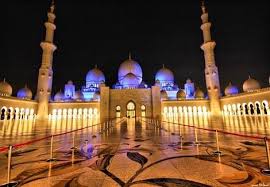Introduction
The history of our world is a story of migration, diversity, empire and belonging. But these topics are not often taught in schools. Black History Month is about teaching ourselves fully and fairly about our history, and not just looking at it from one point of view. Black History Month challenges racism and promotes understanding by making sure that black people's achievements and stories are not ignored.
The origins of Black History Month
The idea for Black History Month started in the USA with the work of Carter G Woodson. He was a brilliant historian and in 1912 he became the second African American to get a doctorate from Harvard University. He was the son of people who had been enslaved, and he saw how the role of his people in American history was being ignored. He started 'Negro History Week' because he believed that teaching black history was essential to give descendants of African people a sense of pride and identity and to protect them within wider society.
Black History Month in the UK
Black History Month in the UK was first celebrated in 1987. It was organised by community activist and London council worker Akyaaba Addai Sebo after a colleague told him that her son had asked her, 'Mum, why can't I be white?' Addai Sebo was sad to learn of the young boy's lack of self-esteem and his low sense of identity. So an event was organised to promote self-pride in people of African and Afro-Caribbean descent through positive teaching of their histories and culture.
Black history, current protests and historical statues
Following the killing of George Floyd in the USA in May 2020, there has been huge international support for the Black Lives Matter protests for racial justice. People want to talk about racism in our society – in our educational, political and justice systems – and how we can stop it. Part of this change involves thinking about how we educate ourselves and others about history. In June 2020, anti-racism protesters in the UK took down the statue of Edward Colston – a man who bought and sold enslaved people – and pushed it into the water in Bristol Harbour. Some people say acts such as these are destroying our history. Others argue that the protestors have actually helped to teach history – the ugly story of a man who transported 84,000 enslaved individuals from Africa to the Americas, 19,000 of them dying on his ships. The debate about what to do with public statues like this continues.
Black history all year round
The Black Curriculum is a group started by young people who want black British history to be taught in UK schools. They say that learning about empire, movement and migration helps young people build a sense of identity and improves social cohesion. Black history is a central part of British history, and learning about it is necessary for understanding diversity and fighting racism. The Black Curriculum and groups like it are asking the UK government to include black histories in lessons all year round, not just in October. This will make sure students get lessons that are relevant to them and that give them a positive sense of belonging.







Amina Islam
25 Feb, 2025 08:56pmThrough this blog, we aim to inspire readers to embrace education as a lifelong journey and to advocate for quality education
Sonia Alam
Education News and Trends: We provide updates on the latest developments and trends in the education sector.
Oyshi Rekha
We discuss strategies to help students make informed decisions about their educational and career paths.